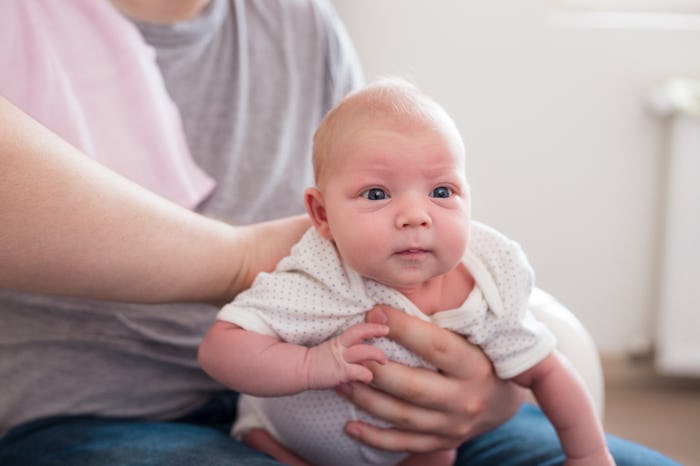Life

The Easiest Ways To Tell If Your Baby Needs To Be Burped
Learning to meet your baby's needs takes practice, especially for tasks beyond the usual feedings and diaper changes. For instance, sometimes your child needs help getting rid of excess gas. So how do you know if your baby needs to burp, before that gas bubble causes distress? For people who can't talk, babies can communicate their needs pretty well.
First, take a look at their facial expressions. If your baby has a painful grimace after feeding, then it's probably time for a burp, according to the website for Dr. Sears. Younger infants or babies who have just enjoyed a big meal are most often in need of a burp, and they'll probably let you know with a worried look. It's a low-key way to get the message across.
Next, some babies resist eating more when they have tummy gas. According to Baby Center, if your little one stops suckling, or resists switching to the other breast, then try burping. Their gas tank might just be a little to full.
Also, babies often cry when they need burping. In fact, babies sometimes wake up crying because they need to be burped, according to KidsHealth. If nothing else seems to be the cause of your kid's midnight wakings, gas may be the real problem. But because crying is a baby's go-to method of communication, it's sometimes tricky to know a "burp" cry from a "change my diaper" cry. In this case, it's a good idea to burp your baby regularly, in order to avoid potential discomfort, according to Parents. Anything that might ward off a crying jag is helpful, right?
If the whole process of burping starts to get old, remember this phase will not last forever. Around 2 or 3 months of age, your baby will no longer need to be burped so regularly, according to Parenting. Eventually your child will learn how to drink milk without taking in so much air. Before then, keep a big supply of burp cloths on hand and prepare to help your kid get rid of excess gas.